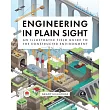Soumya Mukherjee has accomplished his Ph.D in Plant Physiology from the Department of Botany, University of Delhi, India. He has been as ex faculty of Ramjas College, University of Delhi. Currently, he is employed as an Assistant Professor in the Department of Botany, Jangipur College, University of Kalyani, West Bengal, India. He has worked as a CSIR- research fellow in the area of abiotic stress physiology of plants. He has published both research and review articles in various peer-reviewed international journals (SCOPUS and SCI indexed). He is serving as an associate editor in the editorial board of Plant signalling and Behaviour (Taylor and Francis) and the Journal of Plant Growth Regulation (Springer). He has been working in the area of salinity stress physiology in sunflower. He has worked to decipher the role of serotonin and melatonin in imparting salinity tolerance in sunflower and tomato seedlings under salinity stress. He has been working as a Principal Investigator on a DST-SERB funded ’State University Research Excellence Grant’ (2023) on the effects of melatonin supplementation in sunflower for the augmentation of salinity stress tolerance. He has authored e-learning module in Plant Physiology and Biochemistry published as an effort of National Mission on Education through ICT (MHRD Project undertaken by University of Delhi). He has acted as a subject reviewer of various SCOPUS indexed peer reviewed international journals. He has publishing edited volumes in Plant Signaling, and Communication (Springer), Rhizobiology (Springer), Phytomelatonin (Springer), Crop sustainability and IPR (Apple academic press), Strigolactones, Alkamides and Karrikins (CRC press).
Dr. Ramakrishna Akula is currently a scientist at Bayer Science and Innovation Pvt.Ltd., Vegetable R&D, Bangalore, India. Dr. Ramakrishna holds a master’s degree from Sri Krishna Devaraya University, Anantapur, Andhra Pradesh, India. He obtained his Ph.D. in biochemistry from the University of Mysore, CSIR-CFTRI, Mysuru. He is a Senior Research Fellow of CSIR, New Delhi. He is involved in various research fields such as Plant Biotechnology, Biochemistry, Plant secondary metabolites, Food Science and Technology and Vegetable quality analytics. He has published several research papers in the leading international journals, published books, reviews and book chapters. He is also serving as editorial board member, and reviewer for reputed international journals. Presented over 20 research papers in symposia in India and abroad, as well as few invited lectures in India. He attended the Fifth International Symposium on Plant Neurobiology held in 2009 in Florence, Italy. He also attended the Technical Community of Monsanto (TCM) held in 2016, in St. Louis, Missouri. He is a member of the Indian science congress association and society for biotechnologists (India). He is a fellow of the Society for Applied Biotechnology, India (2012), and recipient of Global Vegetable Research Excellence Award (2017), Global technology recognition, Rapid Recognition Award, and Special recognition from the Monsanto company.
Prof. Atanu Bhattacharjee is currently working as Professor at School of Pharmacy, The Assam Royal Global University, Assam, India. He is considered as pioneer in the field of Pharmacognosy & Phytochemistry. Dr. Bhattacharjee achieved his Ph.D in Pharmaceutical Sciences from Nitte University, Mangalore, India. His area of research is phytochemistry and neuro-pharmacology. He worked extensively on various in-silico, in-vitro and in-vivo experiments to encounter neuro-degenerative disorders like Alzheimer’s disease etc. with folklore medicine of Indian diaspora and determination of safety profile, standardization of medicinal plants. More than 25 research and review articles published in internationally acclaimed journals are under his credentials. In 2021, he has received prestigious "Young Scientist Award" by VDGOOD Professional Association, India for his significant contribution in scientific research. His extensive work on natural products to encounter SARS COV-2 has been recognized globally as he has received patent from South Africa in 2022 on "Bioinformatics platform for identification of quercetin derivatives as immunity booster molecules against SARS COV-2". He has also 5 Indian patents under his credentials. He was the Honorable Academic Editor of Asian Journal of Medicine and Health, SCIENCEDOMAIN International, India till 2021. He is also editorial board member and reviewer of many internationally reputed journals. Recently, he has edited a book entitled "Computational and Experimental Studies in Alzheimer’s Disease. [ISBN: 9781003412069]" Taylor & Francis, CRC Press. USA. 2024;



 天天爆殺
天天爆殺  今日66折
今日66折 




























 博客來
博客來 博客來
博客來 博客來
博客來 博客來
博客來 博客來
博客來